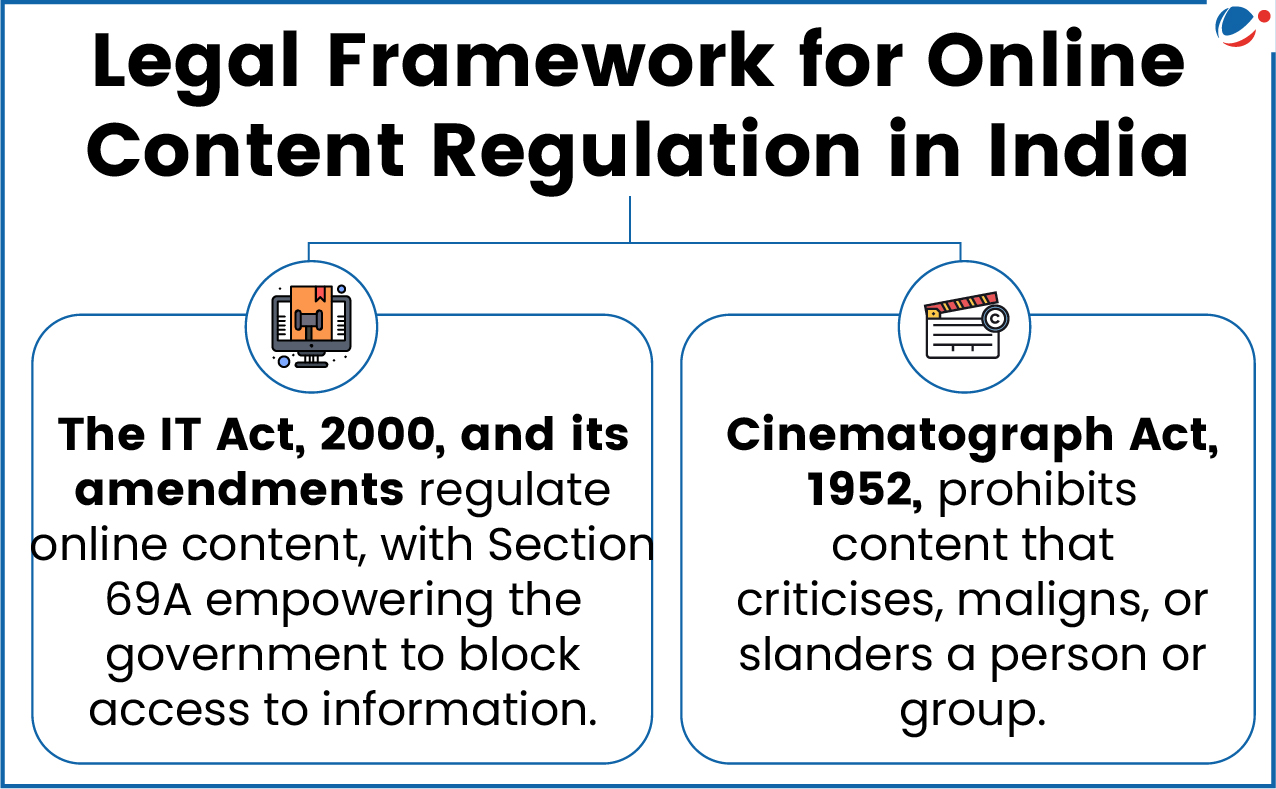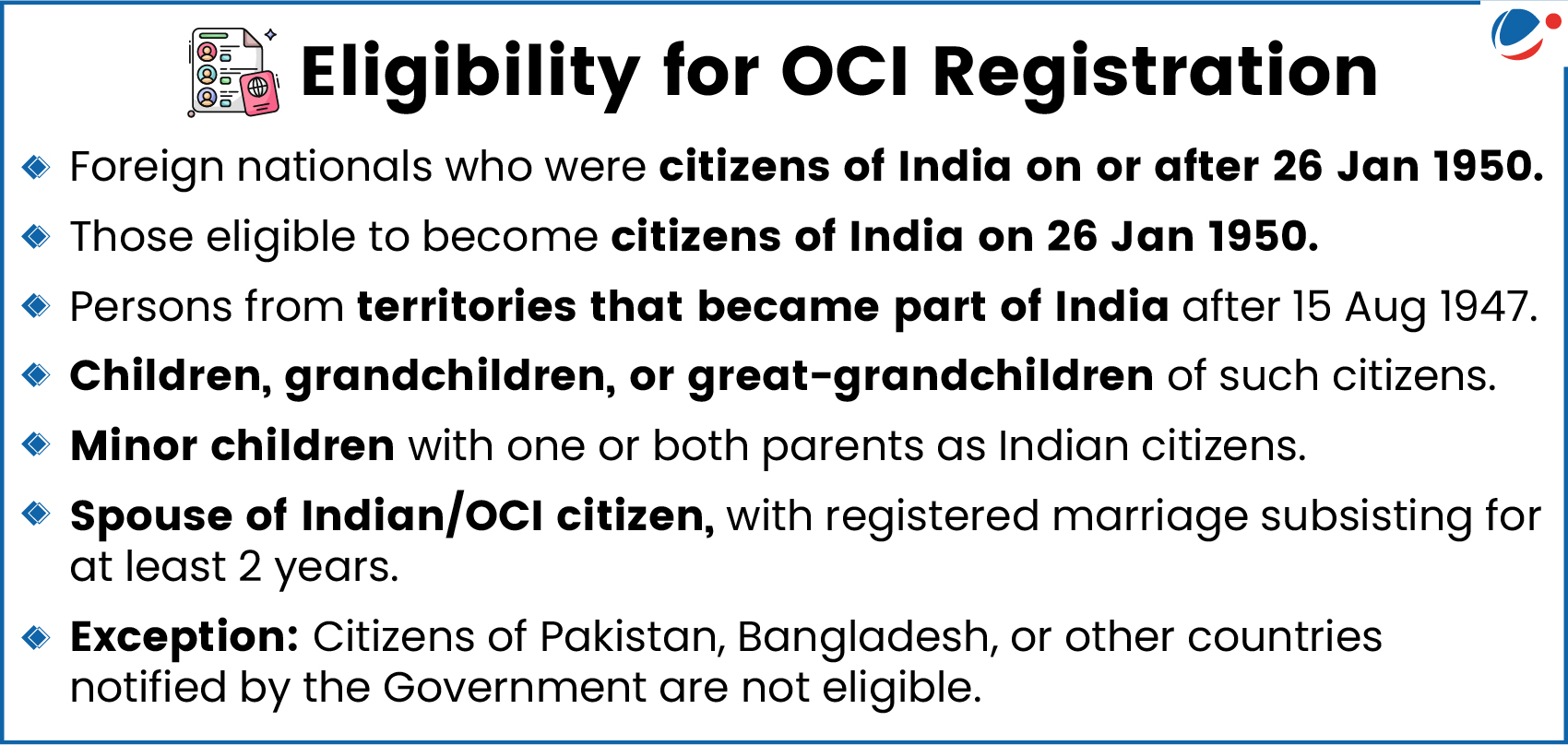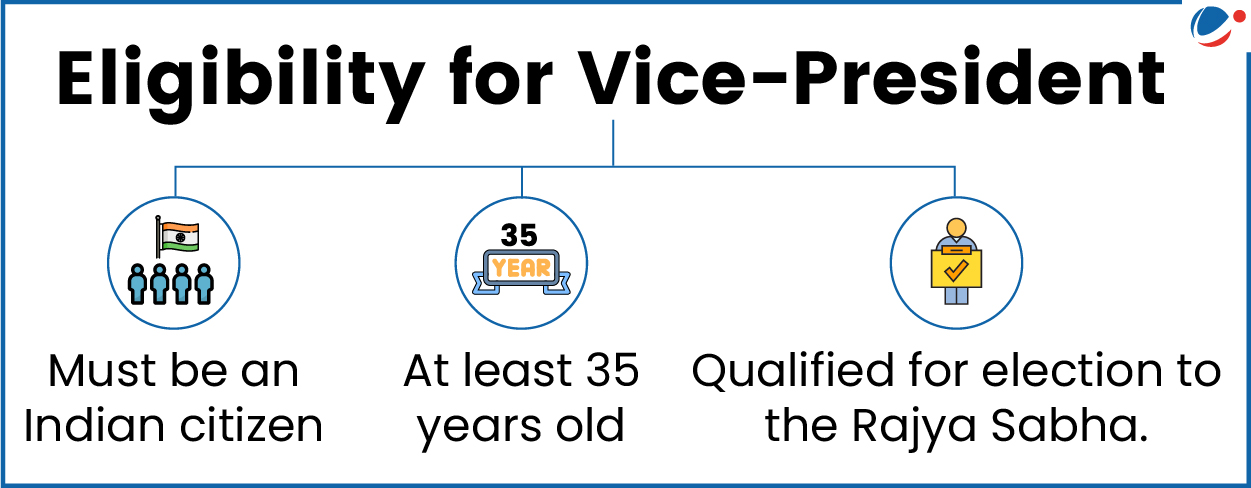The court was hearing a case against social media comedians for “abusing freedom of speech and expression” by making insensitive jokes about persons with disabilities.

Key Judicial Observations
- Commercial & Prohibited Speech Not Protected: Freedom of speech (Art. 19(1)(a)) does not cover commercial speech or prohibited speech.
- Hate speech/Prohibated speech: Expressions that promote or incite enmity, hatred, or violence against a group based on inherent characteristics such as religion, race, caste, or ethnicity.
- Commercial speech: Advertising and related forms of speech with economic intent.
- Accountability of Influencers: Influencers with a large following must act responsibly.
- Penal Action & Compensation: Suggested proportionate punitive measures under IT Rules and Cinematograph Act.
- Social Media Guidelines: Court asked government to draft comprehensive guidelines for regulating online content.
SC Judgement related to free speech
- Amish Devgan v. Union of India (2020): It differentiated between free speech and hate/prohibited speech and emphasised the responsibility of influencers with wide reach.
- Shreya Singhal v. Union of India (2015): SC held that legitimate online expression cannot be curtailed in the absence of imminent harm.
Union Ministry of Home Affairs has issued the notification under Section 7D of the Citizenship Act, 1955.
Key Highlights of the Notification
- OCI (Overseas Citizens of India) registration can be revoked if –
- an individual is sentenced to at least two years in prison; or
- if a charge sheet is filed against them for an offense carrying a sentence of seven or more years of imprisonment.

About OCI Cards
- Introduced in 2005 through an amendment in the Citizenship Act, 1955.
- In 2015, Person of Indian Origin (PIO) card scheme was merged with OCI, and all PIO cardholders were deemed to be OCI cardholders.
- OCI is not to be misconstrued as 'dual citizenship'. It does not confer political rights.
- Ground for cancellation of OCI registration: Registration obtained by fraud; OCI shows shown disaffection towards the Constitution of India; it is necessary to do so in the interest of the sovereignty and integrity of India, the security of India, friendly relations of India with any foreign country, or in the interests of the general public; etc.
- Benefits for OCI Cardholders
- Multiple entries, multipurpose, life-long visa for visiting India, exempted from registration with Foreign Regional Registration Officer or Foreign Registration Officer for any length of stay in India.
- Entitled to general 'parity with Non-Resident Indians in respect of all facilities available to them in economic, financial and educational fields except in matters relating to the acquisition of agricultural or plantation properties'.
The Election Commission of India (ECI) has announced the election date for the 17th Vice-Presidential Election.
Constitutional Provisions related to Vice President:

- Term & Vacancy: As per Article 67, the Vice President serves for five years. Article 68(2) mandates a prompt election in case of vacancy.
- Electoral College: Comprises members of both Lok Sabha and Rajya Sabha (elected + nominated).
- Present strength: 782 MPs.
- Voting System: Proportional Representation by Single Transferable Vote and secret ballot (Article 66(1)).
- Authority: Election Commission of India (ECI) under Article 324 and through powers under Presidential and Vice-Presidential Elections Act, 1952.
Election Procedure of Vice President:
- Nomination: Requires 20 proposers and 20 seconders; ₹15,000 deposit is mandatory.
- Voting: Conducted in Parliament House using special ECI-supplied pens. First preference vote is compulsory.
- Supervision: ECI appoints the Returning Officer (Secretary General, Rajya Sabha) and observers.
Key Safeguards Followed in Elections:
- No party whip allowed.
- Violation of secrecy or use of unauthorized pen invalidates the vote.
- Bribery or undue influence is grounds for election challenge under the Presidential and Vice-Presidential Elections Act, 1952.
The Union Cabinet has approved the Central Sector Scheme “Grant in aid to National Cooperative Development Corporation (NCDC)”.
About the Grant in Aid to NCDC
- The scheme has an outlay of Rs.2000 crore for a period of four years (2025-2029) with an allocation of Rs.500 crore each year.
- The NCDC will serve as the executive agency for the scheme, handling fund disbursement, project monitoring, and loan recovery.
- Grant-in-aid are payments in the nature of assistance, donations or contributions made by one government to another government.
- They are guided by Article 275 (Statutory Grants) and Article 282 (Discretionary Grants) of the Constitution.

Conclusion
This scheme funds modernization and new projects, benefiting millions of farmers by improving their economic conditions, creating widespread employment, and strengthening India's vital cooperative sector.





